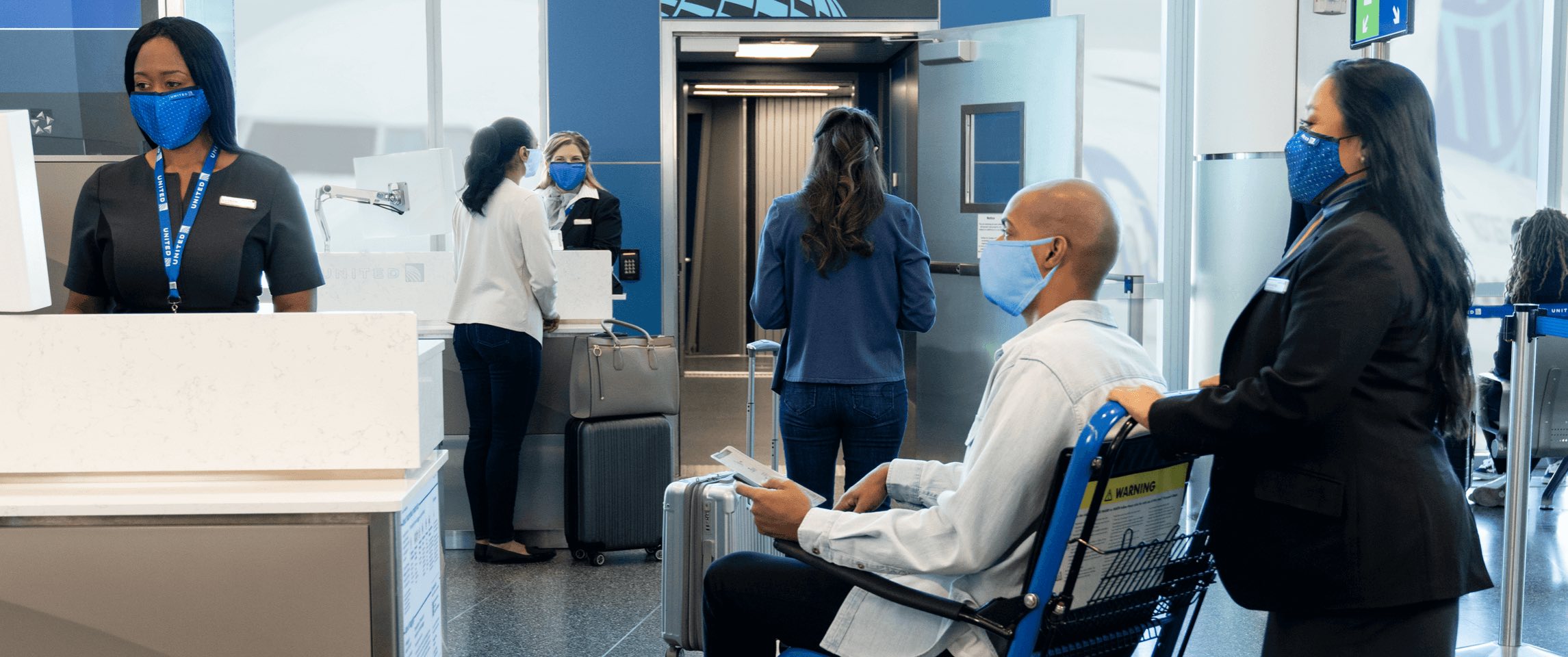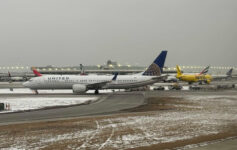
A passenger with autism claims she was not cared for properly by United Airlines. Since United apparently promised to help her in the first place, this mishap serves as an important learning moment for United Airlines.
Passenger With Autism – A Learning Moment For United Airlines
Emilya Kalbun, 25, traveled from Toronto (YYZ) to Guadalajara (GDL) on United. She has autism and this trip marked her first ever solo trip. She reached out to United to request help navigating Toronto Pearson, Bush Intercontinental in Houston, and Miguel Hidalgo y Costilla in Guadalajara. United agreed to help and apparently even sent her email confirmation via United’s disability desk that she would have “special assistance to escort you to your gate and help you with your connection.”
While Canadian accommodation laws are stricter than in the USA, it does not appear this was a gesture extended only to Canadian passengers, but an accommodation available to all passengers upon request.
However, her experience was quite frustrating. Throughout her journey, including in Canada at YYZ Airport, she received pushback with one of two excuses given:
- United doesn’t offer this service
- Kalbun did not “look” like she needed help
The autism spectrum is broad and I know some people with autism that look totally “normal” (as in you would never know). Physical appearance is a bad reason to deny accommodation. It may be reasonable to question whether someone who cannot travel alone is fit to travel alone, but that is a different issue than promising a passenger one thing and then denying it on the basis that she “looks normal.”
Here’s the problem, which presents a great opportunity for United. As someone who has flown nearly two million miles on United, I know very well that United phone agents can promise the world, but if they tell you all will be well and to take care of things at the airport, what they are really doing is just pawning you off on someone else.
Kalbun’s email stated:
“When you arrive at the airport, please self-identify and let our ticket counter representative know that special assistance has been requested in your travel plan and they will call for the attendant, who will take you through security to your gate. Also advise the flight attendants before you arrive at your connection city and destination to ensure an attendant is there to assist.”
United obviously cares about disabled passengers, at least theoretically. Last week it became the first US carrier to introduce braille print onboard. But the current approach is a bad one. Clearly, airport staff have not been trained about the any sort of escort policy for autistic passengers which creates a messy situation for passengers needing such assistance. United should never promise what it cannot deliver.
More importantly, though, United should use this incident as a learning moment. If “Good Leads The Way” means anything at all, it should mean trying to serve a customer, especially when she has a printed email promising her assistance. On the other hand, United staff as well as the contractors who push wheelchairs and would probably be the escorts in this case, are stretched very thin. This is a systemic problem at many airports around the world.
Kalbun complained to United, where a manager at the disability desk wrote, “Based on the limited information available, I must respectfully deny that United was in violation of federal disability regulations since we do not provide an adult care service.”
Ouch.
A United spokesperson, via the Toronto Star, also labeled this as a learning moment:
“We’re going to use this as an opportunity to make sure that we’re handling these cases in the way our customers deserve and reinforce those policies — and even possibly rethink them — to ensure that our customer facing employees understand them and apply them consistently.”
This is the right response. Now they must do it.
CONCLUSION
The concept of under-promising and over-delivering strikes me as the smartest approach in most business contexts, including here.
If United is going to offer this kind of service (and it seems, at least in Canada, this is a statutory requirement), it must actually follow through on what it promises. Otherwise, everyone is upset and 25-year-olds make headlines complaining about how bad United is.
image: United Airlines




Should people complain about a fee for unaccompanied minors? After all, they are not capable of unsupervised travel?
How about food? Should it be free?
How about if your seat is too small?
How about an on board translator?
Or does the government pick and choose unfunded mandates?
Other carriers offer a similar service, especially asian carriers like KE, JL, SQ, and others even at outstations. Sure it ends up being airport staff that ends up accompanying the person in need, but these people are trained beforehand in knowing how to help or provide assistance the entire way from check-in to boarding. UA can really take a page out of their books.
@ Malik
Many airports offer assistance from trained, badged and cleared volunteers. These escorts are booked in advance and matched to any specific needs. Some are even nurses. It’s probably more reliable than trusting busy airline employees.
Oh, now you’re mad about the airline not accommodating a disability. Spare me your bs.
I did not say this at all. I simply said IF the airline promises something, they should deliver…
Why is it that the exceptions have to be the rule?
This is why they give away those Sunflower lanyards.
@ Dave Edwards
To kindly indicate someone may need more time or help. I don’t think they use those at BWI as they operate on a different system with escorts. It probably would be helpful if there was a standardized system (at least within the US) I used the service for an elderly relative and it worked out so well. Grateful for those generous volunteers.
I agree with Matthew. In business, I believe it is advantageous to under promise and over deliver. Exactly what is infuriating with UA under Kirby.
with Kirby, he has a big mouth and little follow through.